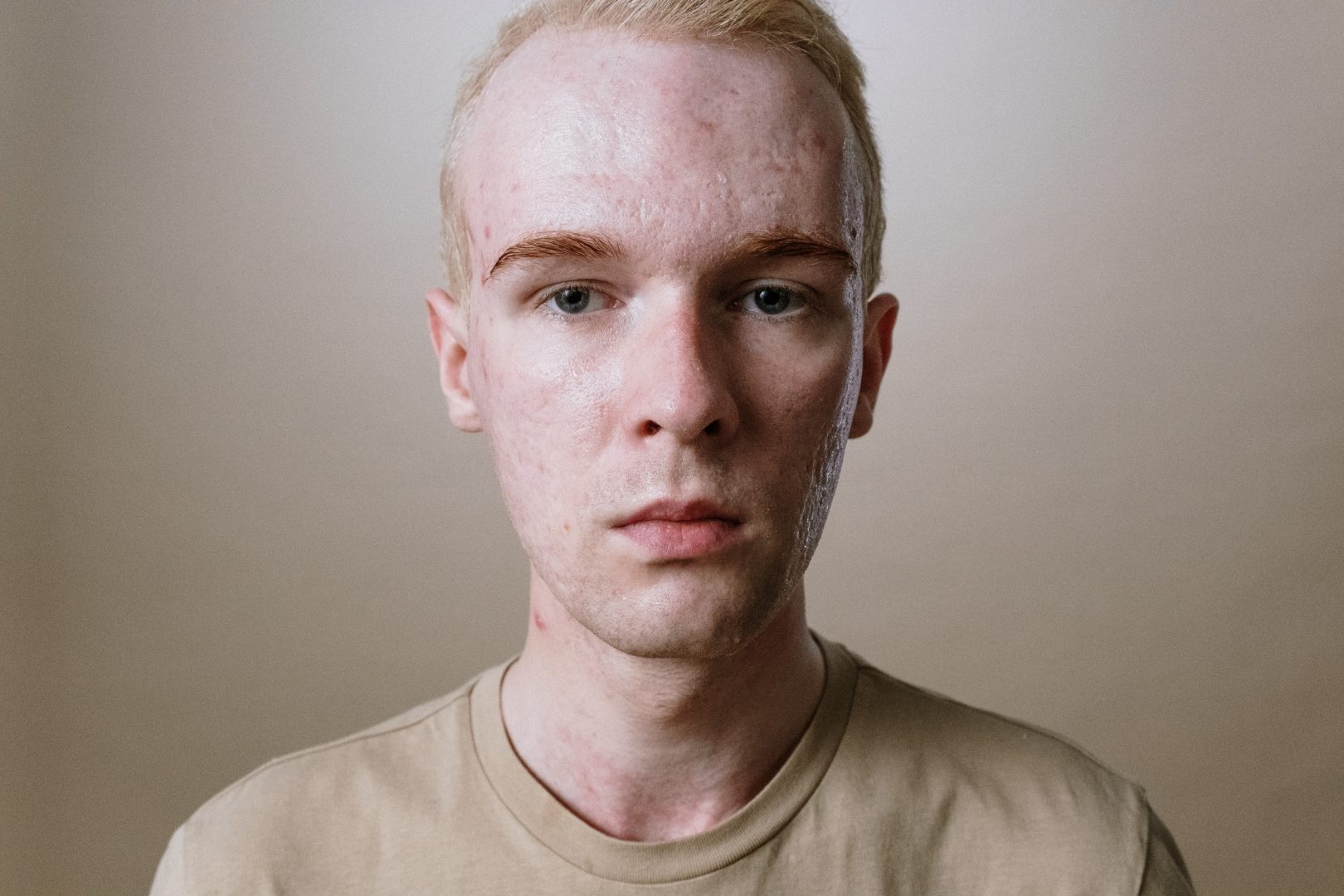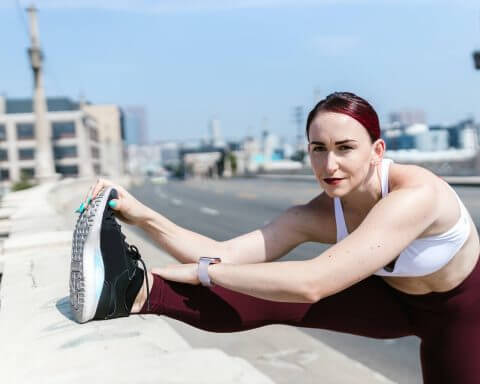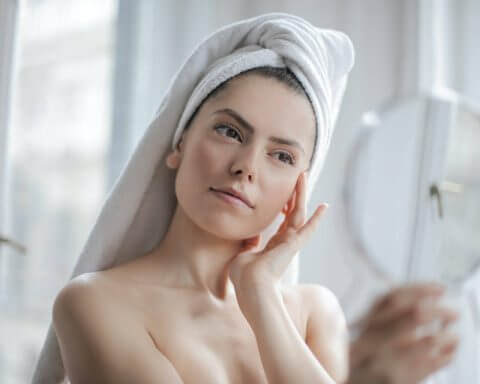Symptoms of Acne
Acne most commonly develops on the face, back, and chest.
Face – Almost everyone with acne experiences this;
Back – Half of the people who live with acne experience this;
Chest – About 15% of people with acne experience this.
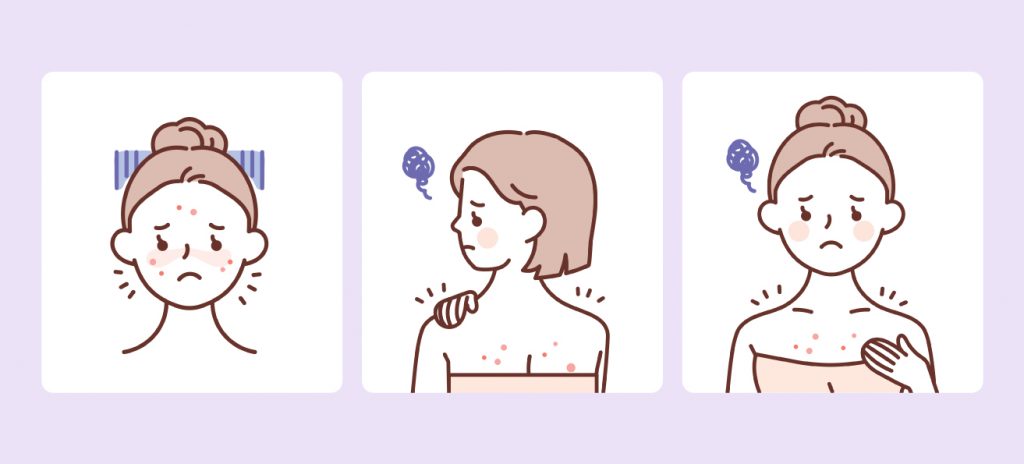
Types of Acne
The 5 main types of spots caused by acne are

- Whitehead or closed comedones – This specific acne looks like the blackheads, however, they have more firmness and do not become empty even when you squeeze them.
- Blackhead or open comedones – These spots can be black or yellow. They develop on the skin and do not have dirty content inside. However, they are black as a result of the inner lining of the hair follicle being color-producing.
- Pimple or inflammatory papule – They are usually small reddish bumps that can be a site or tender.
- Pustule – Their center has a whitetip just like papules. Pus build-up is responsible for causing pustules.
- Nodule or cysts – These spots are large build-up bumps under the skin surface. They cause pain to the skin. Cysts are the most severe spot type of acne. Similar to boils, these pus-filled spots have higher chances of causing scars that could stay permanently on the skin.
Causes and Triggers of Acne
When there is blockage of the hair follicles, it causes acne.
The human skin has sebaceous glands which are tiny glands found close to the skin’s surface and are connected to the hair follicles. The follicles are tiny small holes from which the hair grows.
These glands are responsible for lubricating the hair and skin. They help in preventing the dryness of the hair. The production of oily substances makes this possible.
There is excessive production of the oily substance sebum when it comes to acne. This excessive production of the oily substance leads to mixing with the dead skin cells with both substances forming a plug in the follicle.
The closeness of the plugged follicles to the skin surface can lead to outward bugling, resulting in a whitehead. On the other hand, if the plugged follicle is open to the skin, it can lead to a blackhead. Usually, the blackhead is like a speck of dirt stuck in pores. Usually, the pore is filled up with both bacteria and oil and can become brown upon air exposure.
Pimples, on the other hand, are red spots with a white center which is formed when bacteria infects or inflame blocked hair follicles. When this happens, there is a production of cyst-like lumps below the skin surface.
However, the skin can develop papules, nodules, or even cysts if the harmless bacteria living on the skin contaminates and infects the plugged follicles.
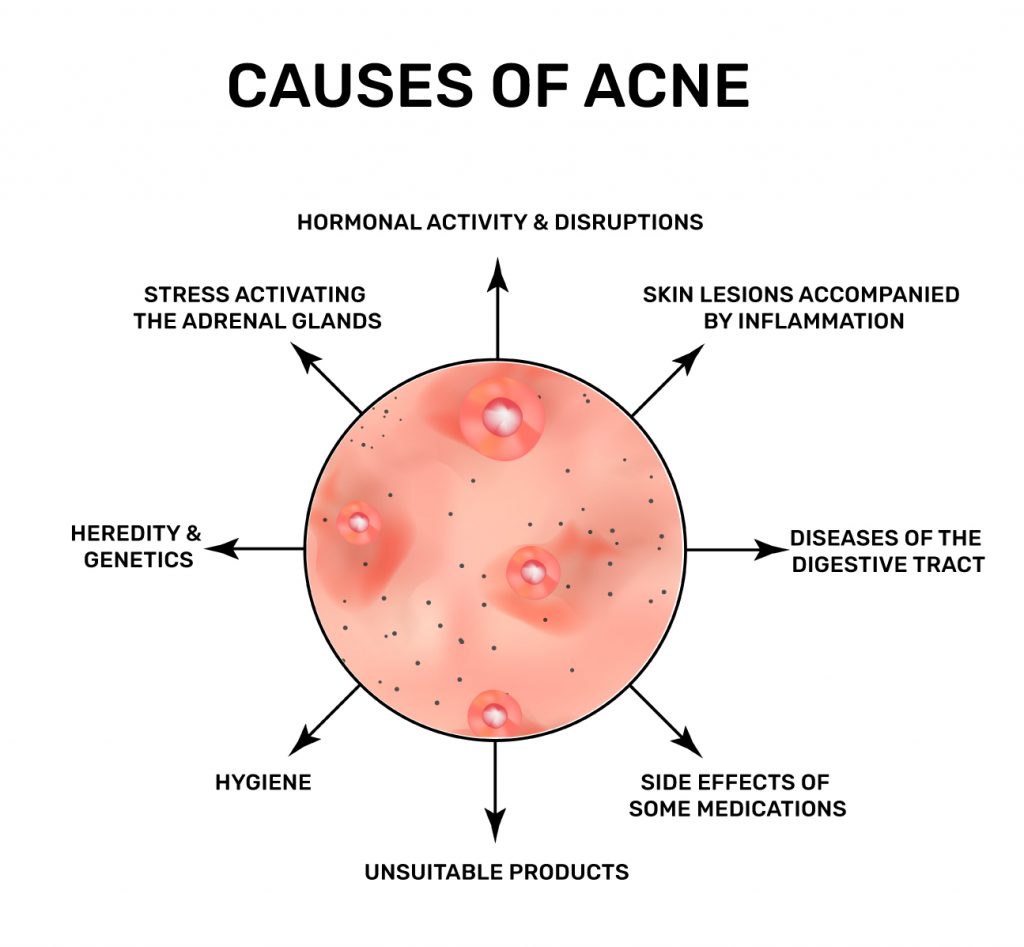
Hormone
Generally, sebaceous glands are very sensitive, especially when it comes to hormones. In some cases, the chances of women developing acne are high as it is sometimes associated with hormonal level change. For example, before their monthly flow, amid pregnancy, or polycystic ovary syndrome.
There is no proof that stress is responsible for cashing. However, having too many stressful sessions or tasks may influence the hormone level and therefore worsen acne in people.
Genetics
Just as acne can affect an individual, it can also be a family thing. You may have higher chances of developing acne if you have parents who had it. A study revealed that if both of your parents developed, you stand a better chance of developing it as well, even at an early stage. The study further revealed that if either or both had developed acne there are tendencies you develop adult as well.
Hygiene
Most people do believe that one of the factors that trigger in people is dirty skin. The truth about this is that excessive or hard scrubbing or cleaning of the skin with strong chemically-produced soaps can cash irritate the skin. This can even worsen acne on the skin.
Cosmetic products
Using cosmetic products that are not suitable for specific skin types may cause acne – however, this is less common as most products are now tested, so they do not cause spots (non-comedogenic). Cosmetics are not necessarily one of the factors that worsen acne, even if you use makeups that contain zero oil that does not clog pores. Also, oil-free cosmetics do not react with drug effectiveness.
Medications
Certain medications may cause acne, for example, steroid medicines, lithium (employed for depression and bipolar disorder treatment), and some epilepsy treatment-related drugs.
Diet
Studies have shown that the consumption of some foods such as carbohydrates-rich foods including bread can make worse. However, there is a need for further study to determine if specific dietary restrictions can be beneficial to people who have acne. Contrary to the opinion or beliefs of people, consuming greasy food or chocolate only has little or zero effect on acne.
Regularly Wearing items
You might not notice regularly wearing items that place pressure on an affected area of skin, such as a headband or backpack, might cause acne as well.
Voibon Tips
Different factors can be responsible for acne. It is, however, best to be informed of these causes and triggers. Although some of these causes may not be prevented especially if it is family-tied, it is important to be wary of the causes to help prevent them.

